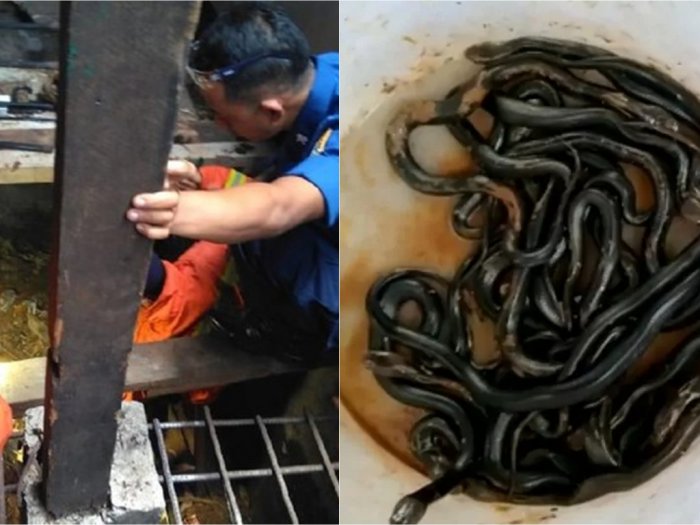Indonesia seems to be in the midst of a cobra emergency if widespread reports of their sightings are anything to go by, one of the latest of which took place here in Jakarta.
Yesterday, the West Jakarta Fire Department caught 18 cobra hatchlings at a house in Kembangan, West Jakarta. Firefighters needed half an hour to extract the venomous reptiles.
“They were in a house, inside what used to be a fish pond,” West Jakarta Fire Department chief Eko Sumarno said, as quoted by Detik.
The baby cobras were taken to be raised by snake handlers in Tangerang.
Over the weekend, residents of a housing compound in Bekasi also found 30 of what appear to be cobra egg shells in their neighborhood. Residents have reportedly killed five cobra hatchlings that slithered into their homes so far, and officials from the local fire department have begun their search on the remaining snakes.
Over the past few weeks, reports of cobra sightings — many of which were hatchlings — emerged far and wide throughout Indonesia, including here in the capital and its satellite cities, as well as in West Java, Central Java, Bali, and more.
Despite the reports, cobra attacks on humans during that time have been rare. The Depok General Hospital says it has treated three suspected of being bitten by cobras over the past week. All three victims survived after they were administered snake antivenom by the hospital.
Another Depok resident died from snake venom in November, though he was reportedly bitten by his pet cobra and not a snake roaming in the wild.
The Indonesian Institute of Sciences (LIPI) says that cobras usually hatch around the beginning of the rainy season, so their recent sightings are considered normal. Those found in Jakarta and throughout Java are usually the Javan spitting cobra, which can eject a spray of venom for several feet and temporarily blinding its target.
The Javan spitting cobra, which can lay as many as 20 eggs at a time, tend to nest in human settlements as they are attracted to warmth. Parent cobras, by nature, leave their eggs as soon as they are laid, leaving hatchlings to spread out in search of food and for survival.
LIPI says that one way to keep snakes out of our homes is to keep it clean and use fragrant floor cleaners as snakes dislike strong smells. Crucially, a dirty house can attract mice, which, in turn, attract snakes.
Should you get bitten by a snake, LIPI says you should follow the World Health Organization’s Guidelines for the Management of Snake Bites (which you can read here) and get yourself to a hospital that provides snake antivenom.
ALSO READ: Indonesian toddler fearlessly plays with (and kisses) huge cobra while adults film interaction




